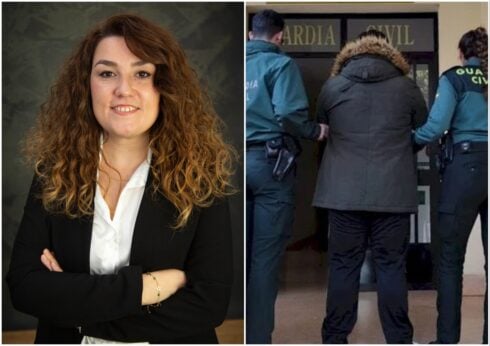Zero tolerance for immigrants – but only of certain races: Lisa Tilley gains an insight into the far-right anti-immigration parties who won more seats than ever in Spain’s local elections this year
“I USED to hate Isabel la Católica. I thought she was awful for throwing out all the Muslims,” said the sweet mannered teacher, while marking exam papers in Extremadura. She glanced around and leaned in closer: “But now I don’t… Now I know she was right.” Such openly racist comments seem somehow more shocking from an educated, middle-class mouth, but it is this kind of sentiment that the much more approachable, user-friendly parties of the far-right in Spain wish to harness.
From mild fatigue of increasing immigration, to untapped racism and fear rising from ignorance: the new anti-immigration parties turned these views into votes and gained 50 extra councillors in Spain’s local elections this year.
Crime and disease
The new far-right shun the “ultra” or “neo-Nazi” appendages, which carry such negative connotations; instead their language is toned down, more easily digested by Spaniards of various social standings. They are not, they say, “extreme” but “preferentialist” – the Spanish should come first, they insist, and from this perspective they may have reached an untapped vein in public opinion.
Gone are the skin heads and aggressive behaviour. In their place are the suited, articulate middle class. People who look and talk like any teacher or business owner are fighting on their principal battleground: the field of immigration.
What is more, they are deliberately aiming for a new demographic – young people and workers are their target voters.
Despite the woolly makeover, scratch the surface and the old extreme right is there: single issue anti-immigration parties such as España 2000 blame immigrants for draining Spain’s social welfare and bringing crime and disease.
Of course, they do not mention 50 per cent of Spain’s economic growth in the last five years is due to immigrant labour, nor do they bring up the humanitarian issues surrounding the migrants arriving from developing countries.
Despite their imbalanced debate, however, they are winning the voters.
Far right mayor
The shock result of May’s local elections was in Talayuela- a town in the Cáceres province of Extremadura, that driest of regions.
Talayuela was awarded the ‘Medal of Extremadura’ in 2004 for being a model city in terms of convivencia – the harmonious coexistence of different cultures. Of its 10,000 inhabitants around 3,500 are immigrants, mostly Moroccan, but others hail from various countries including Ecuador, Romania and Senegal. They come to fill informal or seasonal jobs in the surrounding pepper, asparagus and tobacco plantations.
Back in 2003, Spain’s governing socialist party, the PSOE, gained over 55 per cent of the town’s votes and won ten seats on the council, while the right-of-centre Partido Popular (PP) won four seats.
Then, just one year ago, a new party was formed by the name of Iniciativa Habitable (IH) – it began as a protest group against plans to construct a mosque in the town.
Its extreme right-wing stance and inflammatory rhetoric worried local human rights groups and parents’ associations, who filed a petition asking for the IH to be investigated for “maintaining a discourse full of racist and xenophobic prejudices with a large dose of fanaticism.”
The PP may have worried a new right-wing party would steal some of their voters in this year’s local elections – but nobody could have predicted the actual outcome.
Political hurricane IH struck in earnest winning 27.5 per cent of the votes – enough to gain five councillors, thereby matching the PP (who actually gained an extra seat on 2003) and the PSOE, who lost 5 councillors.
The surprise, of course, was that the IH did not so much split the right as cause disaffected socialist voters to jump the divide.
After gaining entrance to the town hall on just an immigration ticket, the leader of the IH, Jorge Gómez, tried to explain his philosophy: “We only say what others don’t dare say; we need to regulate immigration, because you simply cannot overfill the boat without sinking it.”
The party also express their dissatisfaction with immigrants owning businesses, claiming their standards of hygiene do not match those of the Spanish. They also argue immigrants bring health problems, citing two cases of tuberculosis they say were brought from abroad.
Tolerance?
Elsewhere in Spain, a flock of similar new far-right parties have emerged over the last five to ten years. The party España 2000 has taken Valencia by storm, winning councillors in three town halls.
Its leader is José Luis Roberto, a lawyer with interests in the management association of clubes de alterne (Spain’s neon-soaked motorway brothels).
The campaign video of España 2000 shows still after still of pictures of black Africans, arriving by boat, being assisted by the Red Cross, sitting on the street, selling fake designer goods. These images are overlaid by text which reads: “La inmigración masiva (the massive immigration)… What worries you about Spain?”
More sentences flash across the faces of Africans: “The invasion of the illegals. Increasing social expenditure. Collapse of hospitals. The rise of delinquency.”
And various other emotive generalisations pop up until in big red letters: TOLERANCIA CERO – zero tolerance.
Incidentally, the images are only of Africans, there are no retired, white Germans for example, indicating España 2000 is racially selective of the immigrants they campaign against.
Meanwhile, the Plataforma per Catalunya (PxC) gained 17 councillors in Catalonia by campaigning for all “illegals” to be expulsed.
The Partido de Acción Demócrata Española (PADE) won 20 councillors in Madrid and Guadalajara. Their president, Juan Ramón Calero has asked for the immediate expulsion of all illegal immigrants. He did, however, diversify the party’s single policy stance by attacking homosexual unions for being “unnatural.”
The Democracia Nacional (DN) won three seats in May and is led by ultra-right Manuel Canduela, founding member of neo-Nazi band División 250. The DN is also a member of Euronat, an ultra-right European network of parties which includes the long prominent Jean Marie Le Pen’s party, the French National Front.
In perspective, explicitly anti-immigration councillors still amount to just 50 in 66,162 elected seats in Spain; but the buoyant far-right will be encouraged by the exponential growth of their votes.
Expect the 2011 elections to see a further boom in this field – unless Spain manages to combat prejudices and consolidate growing multiculturalism at the community level.
Click here to read more News from The Olive Press.






Xenophobic, garrison state nationalism is not unique to Spain! What about the same attitudes among the American Far Right? The answer is assimilation and lots of humanistic education, as well as more liberal and progressive education!
Thanks!